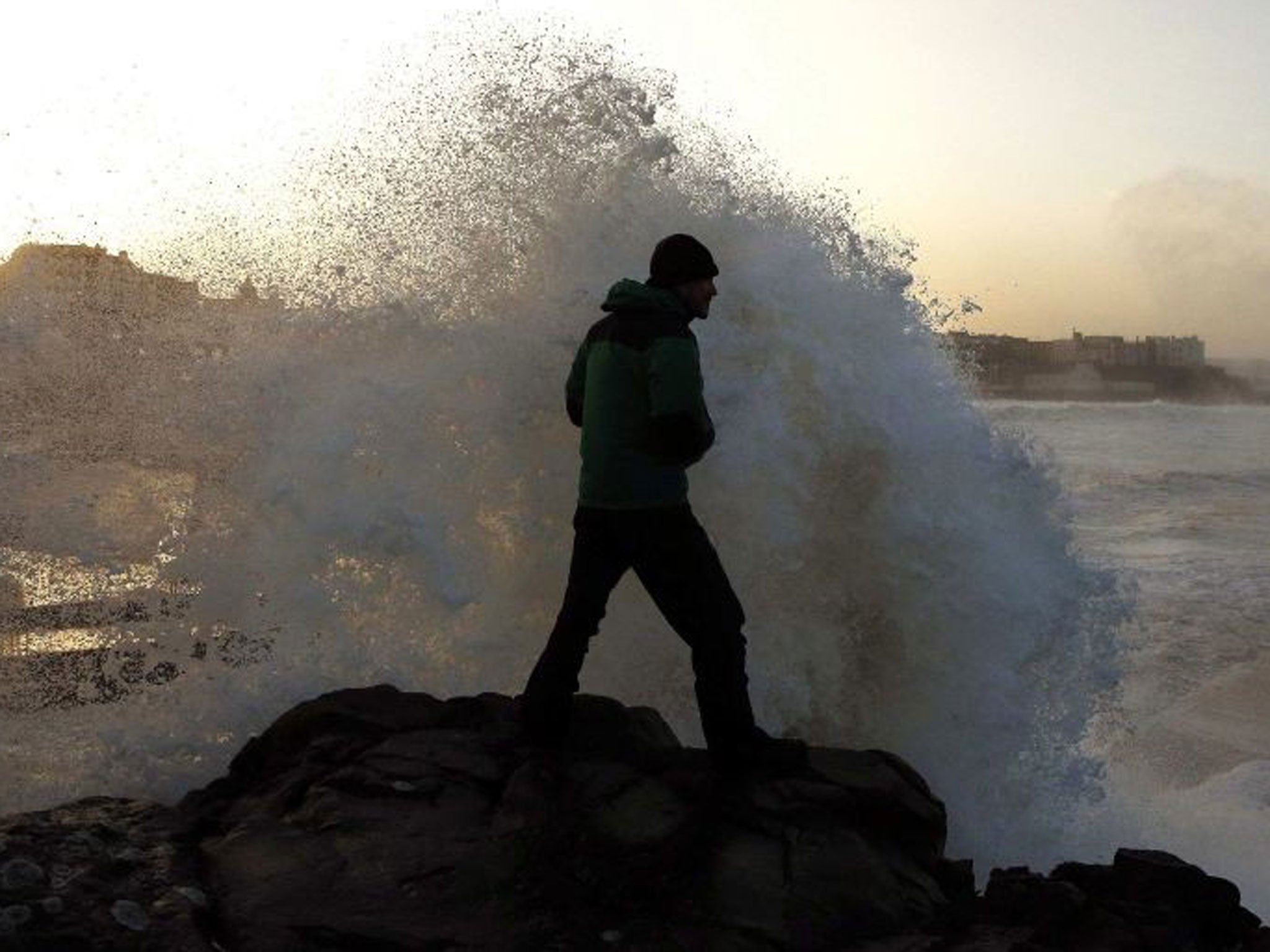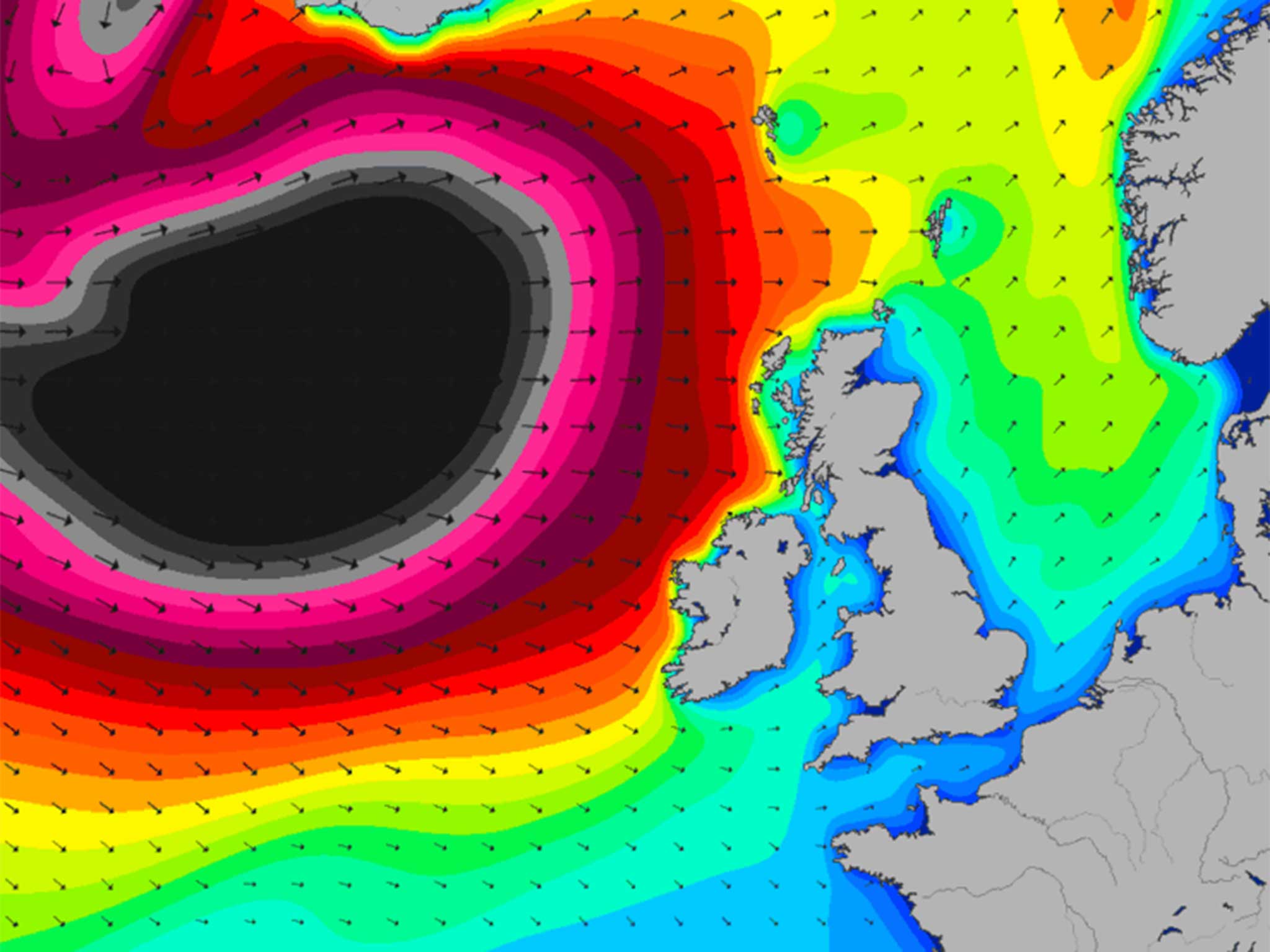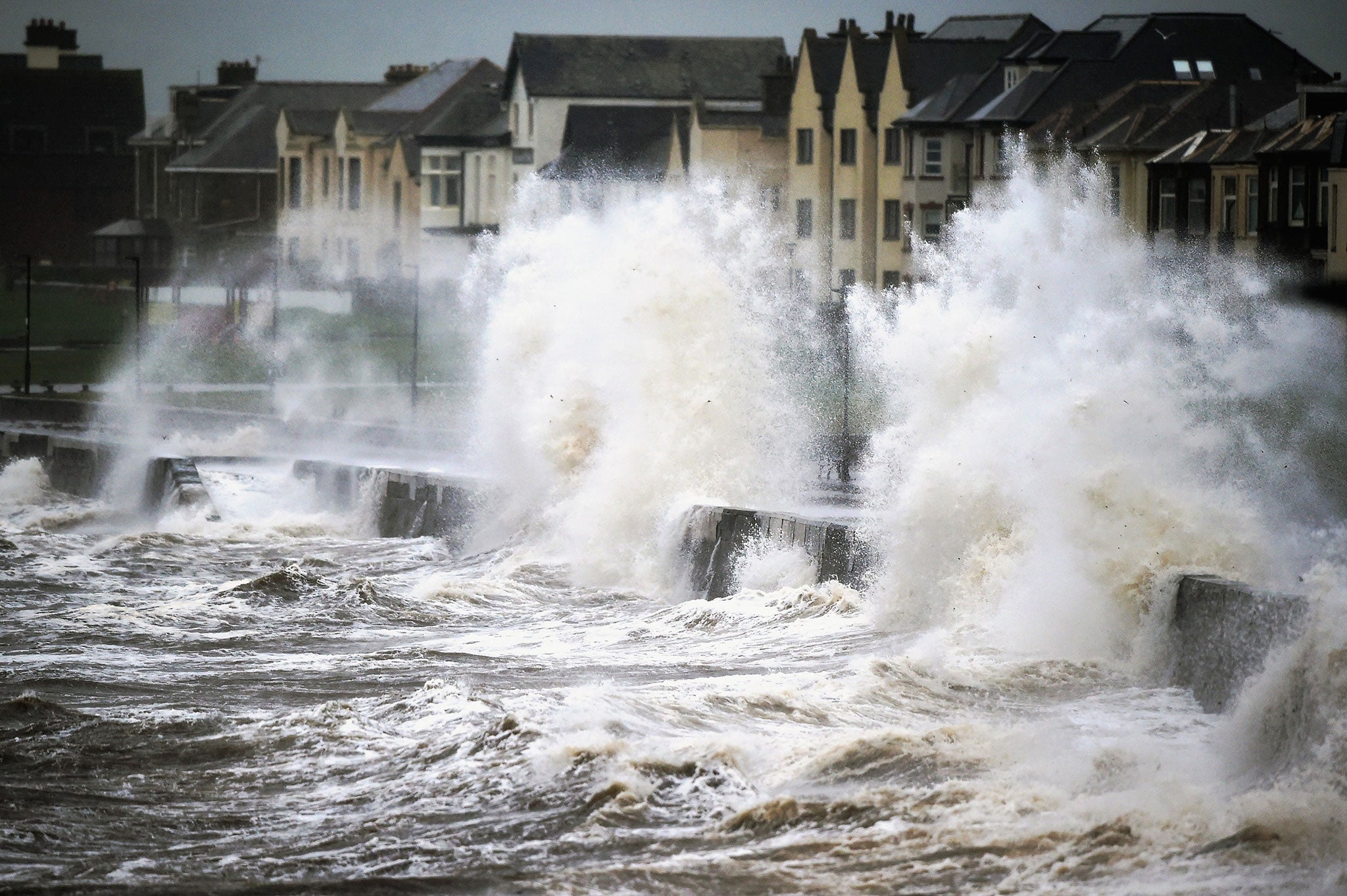'Weather bomb' batters Britain: UK hit by 40ft waves, 80mph winds – and now 17,000 are without power
Bridges and roads are being closed amid fears of flying debris and damage

Your support helps us to tell the story
From reproductive rights to climate change to Big Tech, The Independent is on the ground when the story is developing. Whether it's investigating the financials of Elon Musk's pro-Trump PAC or producing our latest documentary, 'The A Word', which shines a light on the American women fighting for reproductive rights, we know how important it is to parse out the facts from the messaging.
At such a critical moment in US history, we need reporters on the ground. Your donation allows us to keep sending journalists to speak to both sides of the story.
The Independent is trusted by Americans across the entire political spectrum. And unlike many other quality news outlets, we choose not to lock Americans out of our reporting and analysis with paywalls. We believe quality journalism should be available to everyone, paid for by those who can afford it.
Your support makes all the difference.More than 17,000 people have been left without power as a “weather bomb” bringing storm-force winds and giant waves hits the UK.
The electricity supply to the whole of Scotland's Western Isles cut out shortly before 7am and engineers are working to restore it.
Crew members had to be rescued from a Spanish fishing vessel that got into difficulty in churning seas off Orkney this morning. A helicopter was scrambled to answer the O Genita's mayday call after the wheelhouse was hit by huge wave, but had to turn back because of lightning.
The Stromness lifeboat eventually reached the boat and took its crew to safety.
Warnings have been issued across northern England, Wales, Northern Ireland and Scotland urging people to prepare for possible disruption and coastal flooding.
Forecasters at the Met Office have predicted gusts of up to 80mph in exposed areas that could topple trees on to railways and power lines, rip roof tiles off and cause structural damage, as well as “exceptionally large waves” smashing into the western coastline.
A gust of 81mph was recorded in Tiree at 10am while South Uist was hit by a 79mph gust at 9am and Islay by a 77mph wind at 5am, according to the Met Office.
Winds of around 50mph have been recorded in north-west England and North Wales, where yellow "be aware" warnings are in place
Western and northern Scotland will be worst-affected and are covered by an amber warning for wind today, while the rest of the UK is covered by a yellow alert.
The process behind the storm - rapid cyclogenesis, known as a “weather bomb” - is a deep low pressure system moving between Scotland and Iceland.
Police warned that travel conditions in the worst-hit areas of Scotland could be “hazardous”, with disruption also expected on ferries, rail services, roads and bridges.

Traffic Scotland said gusts of 70mph have been recorded on the Forth and Tay road bridges while the Met Office recorded a 59mph gust in Lerwick, Shetland, and a 55mph gust in Glasgow.
Causeways and coastal roads exposed to the west are the most dangerous and ferry services are being cancelled because of huge waves and sea swells of up to 40 ft.
Snow showers will also bring an additional danger, mainly over higher ground where several inches could fall.

Several train services have been cancelled as a safety precaution and the Scottish Environment Protection Agency has more than 20 flood alerts and warnings in place.
The Forth Road Bridge connecting Edinburgh and Fife could be closed to all vehicles except cars because of the risk of lorries and vans being blown over and access to the Kessock and Skye bridges may also be limited.
In the Western Isles, all school, nurseries, libraries, museums and sports centres have been shut after police advised people not to travel unless it was absolutely necessary.

John Swinney, Scotland’s Deputy First Minister, urged people across the country to heed travel and safety warnings.
“I am confident we are well-placed to cope,” he said.
The “weather bomb” will be followed by plunging temperatures but councils south of the border insisted they were prepared, with gritting lorries out in force and depots filled with about 1.3 million tonnes of salt.
The Met Office warnings for wind run through today and into tomorrow morning and on Friday, the severe weather will move from the north to southern England, the Midlands and Wales.
Additional reporting by PA
Join our commenting forum
Join thought-provoking conversations, follow other Independent readers and see their replies
Comments